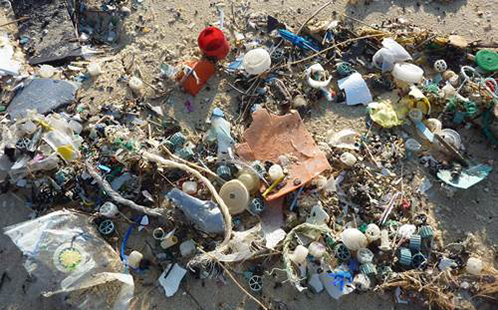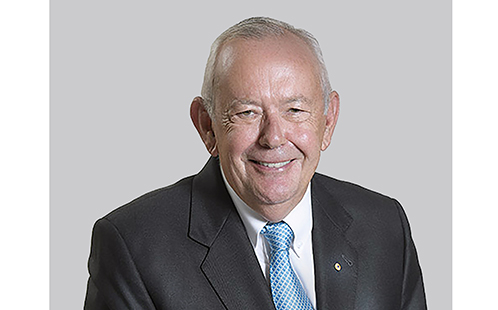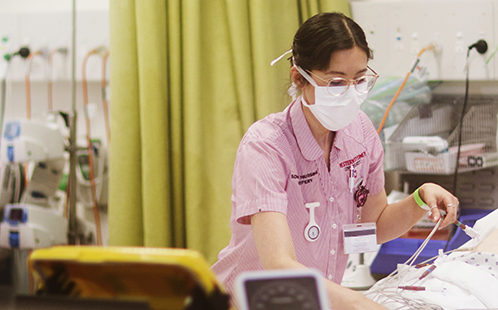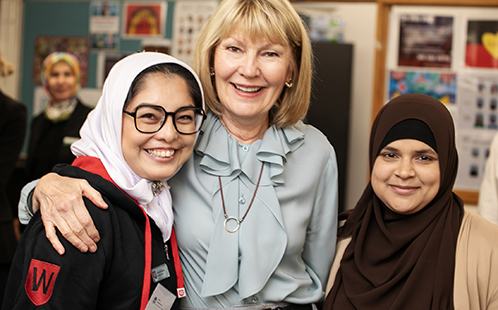The war on waste takes Western Sydney’s WiSE women abroad

The Women in Science and Engineering (WiSE) Program at Western Sydney University creates opportunities for women to get hands-on experience; attend industry events; meet employers; be mentored by professionals in their fields; and explore where careers in science and engineering can take them.
In June, the WiSE Program will be taking them to Fiji.
Wendy Truelove, the coordinator of the WiSE Program, says eight outstanding students are participating in a seven-day study tour to Nadi, Lautoka and Suva.
"The students will be getting an intensive crash course in the real-world applications of science and engineering – by visiting a developing country, and learning about one of its most critical environmental challenges," says Ms Truelove.
Ms Truelove says the study tour will focus on waste management – which has been identified as a complex and significant issue in Pacific Island countries where the challenges are magnified by geographical isolation, limited land area and economic factors.
"On the tour, the students will be investigating problematic waste items – such as plastic, batteries and health-care waste – and following the pathway of these products from importation to disposal," says Ms Truelove.
"We have some significant high level meetings planned – with the World Bank, Asian Development Bank, European Union Delegation to the Pacific – as well as visits with local councils, the private sector and a Christian ministry women's project at the grassroots level.
"The students will also visit Fijian businesses and agencies; waste disposal sites; composting facilities; city and rural food markets and conduct their own analyses of environmental issues."
The study tour group includes women studying medical science; chemistry; biology; sustainable agriculture and food security; forensic science and education. Ms Truelove says this multidisciplinary group is a good match for the complex issue of waste management which needs to be tackled from all angles.
"Each student has a specific area of expertise and skill to contribute – and together they will be conducting a broad exploration of the issue as a whole," she says.
"The medical science students can focus their investigations on health-care waste disposal; the sustainable agriculture students can delve into food safety issues; chemistry students can look at how plastics break down over time."
The tour is funded by the International office of Western Sydney University and the Careers Team has been assisted in planning the tour by the Pacific Region Infrastructure Facility/Asian Development Bank. The students will be delivering a presentation in their Sydney offices on their return.
Now in its third year, the WiSE Program is offered to women enrolled in science, technology, engineering and mathematics degrees at Western Sydney University. The program was established to foster women studying in non-traditional fields, where they represent a significantly lower proportion of student numbers.
WiSE Program: www.westernsydney.edu.au/wise
Latest News

Western Sydney University receives transformational donation to support LGBTIQA+ community
Western Sydney University has welcomed a philanthropic donation from The Brennan Lynch Foundation.

Western Sydney University ranks among world’s best for 23 subjects
The University has been named as one of the world’s top universities for the study of 23 subjects in the latest edition of the QS World University Rankings by Subject, including being ranked in the top 50 for Nursing.

Western Sydney University receives landmark $7.9 million philanthropic gift from Harvey Norman to launch leadership academy, empowering young women in Western Sydney
Western has welcomed a landmark donation to establish the Harvey Norman® Young Women’s Leadership Academy Led by Katie Page.
Mobile options:

